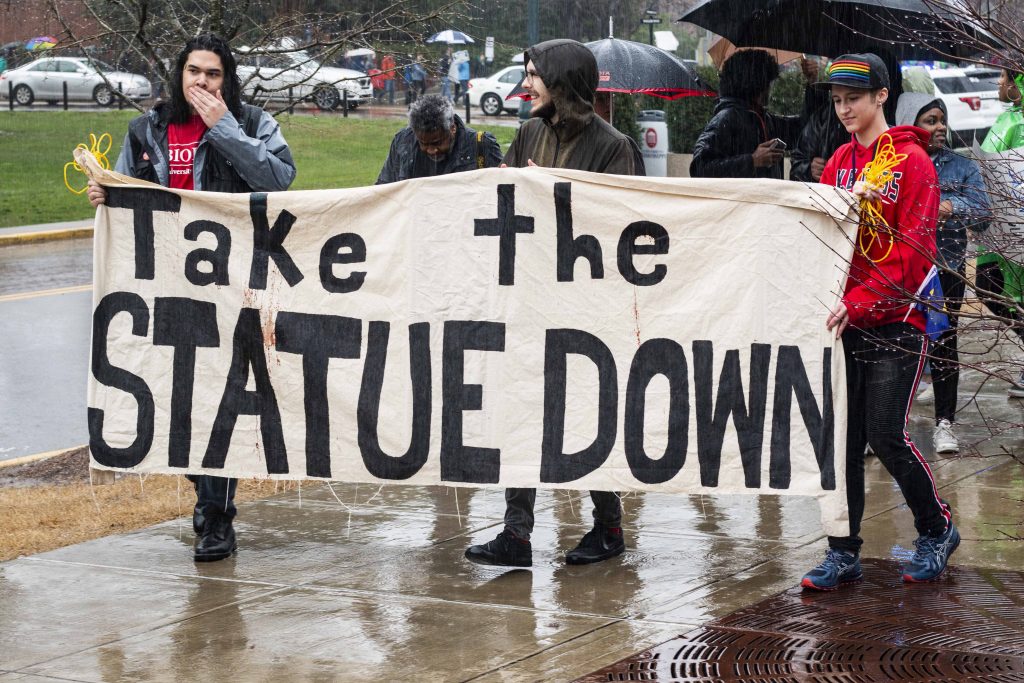I grew up in the suburbs of Chattanooga, Tennessee. My childhood memory is imperfect, but I can only remember one black family out of all three neighborhoods that I grew up in. I attended a private school that was located in the white suburbs when it was founded in the ‘50s. However, by the time I attended, the neighborhood had become a working-class, majority-black neighborhood.
While some students from the local neighborhood attended my school, a large majority of us lived in the white suburbs. We flippantly used words like “ghetto” and “the hood” to describe the area around my school and never really considered the impacts of that language. When I came to the University of Mississippi, I noticed how the phrase “other side of the tracks” in small, rural towns serves the same linguistic purpose that “ghetto” does in larger cities. This language is a way of “othering” members of our community who live in the “bad parts of town.” These words signify poverty, low property values, crime, blackness, latinidad and above all, that I, the speaker, am not part of that community.
Instead of asking why the black neighborhood around our school experienced such different material and social conditions than the neighborhoods we grew up in, my classmates and I accepted it as a given. Even worse, we would turn into racist apologetics, citing black-on-black crime, single motherhood and even rap music to show that black and Latinx cultures were somehow lazy, violent and lacking in self-control.
When confronted with the massive wealth, health and educational disparities between black people and white people, we pointed to what we saw as their problems instead of looking inward at our own complicity in the creation and continuation of those disparities.
Ta-Nehisi Coates’s article,“A Case for Reparations,” shows the ways in which redlining and blockbusting have destroyed black wealth. Racist housing policies have operated to segregate black people in the worst parts of town. In fact, in 2006, black families earning more than $200,000 were more likely, on average, to be given a subprime loan than white families only making $30,000 — even when controlled for credit score.
Whenever black people sought to move into better neighborhoods, they first had to find a realtor who would even show them a home and then a bank that would give them a loan. Those who triumphed against the racist institutions were still viewed as lazy, poor criminals by their new white neighbors. They believed the arrival of the new black family lowered their property values, and because racist institutions determined the property value, it probably did. So they fled to the suburbs to start new gated neighborhoods that were wealthier, whiter and had higher property values. Because property taxes fund school districts, this affected not only the creation of black wealth but also disparities between black and white school districts.
We can see from Ed Meek’s Facebook post from six months ago that he is influenced by the same forces. He posted a picture of two black students, Mahoghany Jordan and Ki’yona Crawford, enjoying their night out on the Square, and he commented that if we allow this to continue “real estate values will plummet as will tax revenue.”
His comment provides an insight into the minds of the upper class in Oxford. As Oxford continues to experience economic growth and attracts new people from all over Mississippi, keeping property values artificially high will help to control the types of people who move here.
It’s not that African-Americans will lower property values, but lowering our property values will allow for a more diverse group of Mississippians to move here. One simply has to visit affordable housing like the Links and Campus Creek or expensive housing like Hooper Hollow to see how property value influences where different people live. The majority of our city represents a suburban gated community for the elite of Mississippi and their children, maintained by its high property values. Meek and other power brokers of Oxford are influenced by the racist fear of Oxford becoming “ghetto,” and until that changes, we will live in a place where students of color are the “other.”
Jacob Gambrell is a senior international studies major from Chattanooga, Tennessee.















